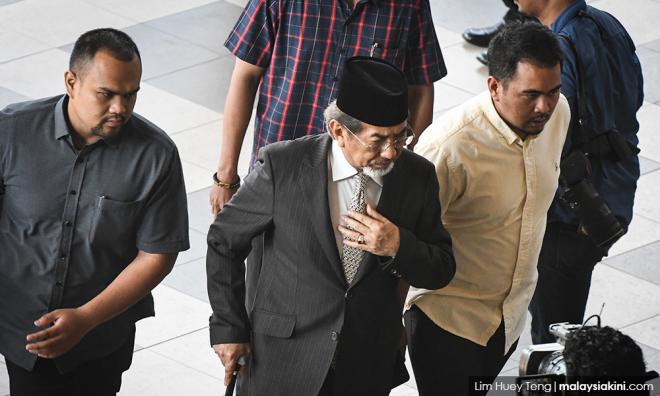
The talk of the town this week was the discharge and acquittal of former Sabah chief minister, Musa Aman. He was previously charged with 46 counts of money laundering and corruption.
Earlier this week, the prosecution applied to withdraw the charges and the High Court judge subsequently acquitted Musa Aman. When news broke of what happened, many were up in arms. After the prosecution withdrew charges against Riza Aziz, this latest decision by Attorney-General Idrus Harun was viewed negatively by the public.
Perhaps anticipating the backlash, Idrus issued a statement on the same day explaining why the decision was made. According to the AG, he decided not to continue with the prosecution because witnesses were unavailable, documents could not be obtained and an affidavit deposed by former attorney-general Abdul Gani Patail.
I do not wish to comment on the reasons given by the AG. In any event, Idrus has the discretion as accorded by the Federal Constitution. Unfortunately, rightly or wrongly, public perception of the administration of justice suffered another blow with this decision. This is something that must be dealt with by all stakeholders in the legal system.
What I do wish to comment on is the decision by the learned High Court judge to acquit Musa. There has been some inconsistency in relation to what would be the correct order to be made by the judge when the prosecution decides not to continue the prosecution. There have been instances where a full acquittal is given, while in some other instances the accused is granted a ‘discharge not amounting to acquittal’ or DNAA. It was previously presumed that an acquittal should be granted when the prosecution withdraws charges after the trial has started, but may have changed especially in light of what happened in Musa’s case.
Some clarity would be useful, and as such, I do think the prosecution should consider appealing against the decision to acquit Musa, if nothing, to settle the issue of what would be the correct order in such circumstances.
The difference between an acquittal and a DNAA is of course, significant. If a person has been acquitted, he cannot be charged again for the same offence on the same facts. Article 7 of the Federal Constitution provides for this and the principle has also been codified in the Criminal Procedure Code. In practical terms, even if documents which could support the prosecution’s case found or new witnesses come forward in a case such as Musa’s, he could not be charged again for those offences.
As such, there is merit in those arguing that perhaps a DNAA would be the more appropriate outcome, especially in light of the reasons given by the AG. Of course, this is not to say that Musa is guilty. The principle of innocent until proven guilty is sacrosanct and is the bedrock of the criminal justice system.
Be that as it may, it is high time that the law is settled in this regard. Consistency would certainly contribute to rebuilding the public perception of the administration of justice.
SYAHREDZAN JOHAN is a civil liberties lawyer and political secretary to Iskandar Puteri MP Lim Kit Siang. - Mkini



No comments:
Post a Comment
Note: Only a member of this blog may post a comment.